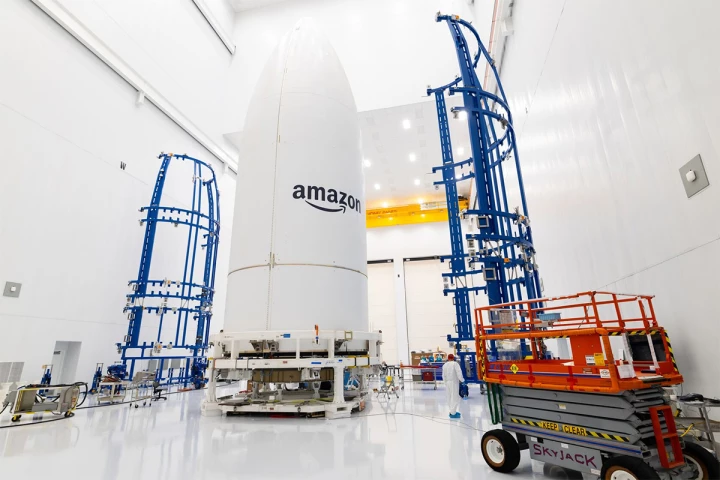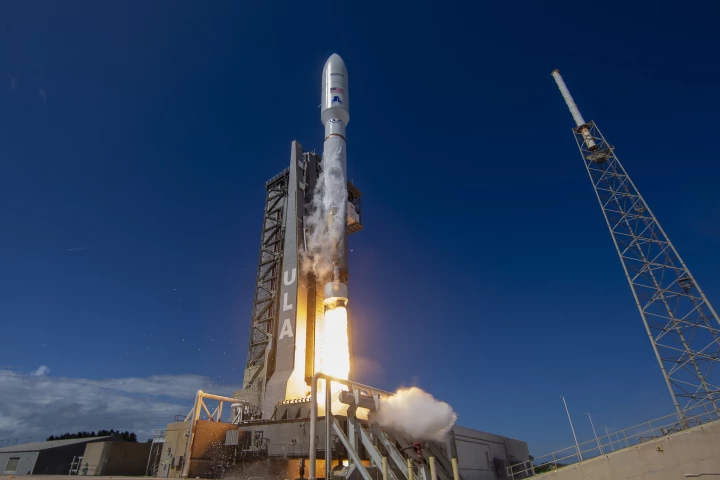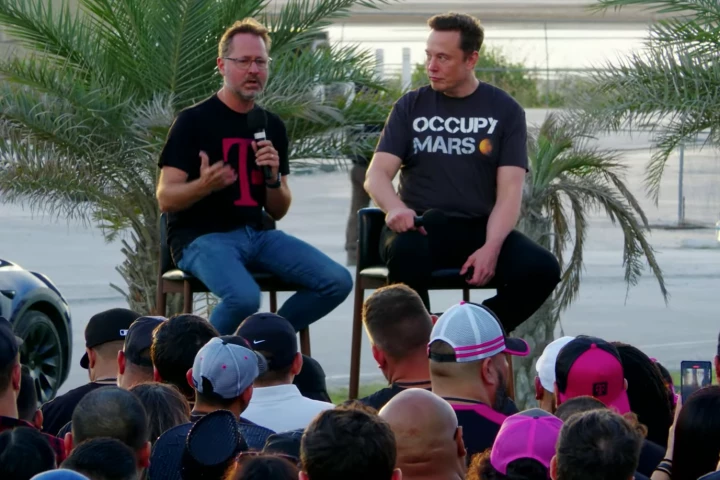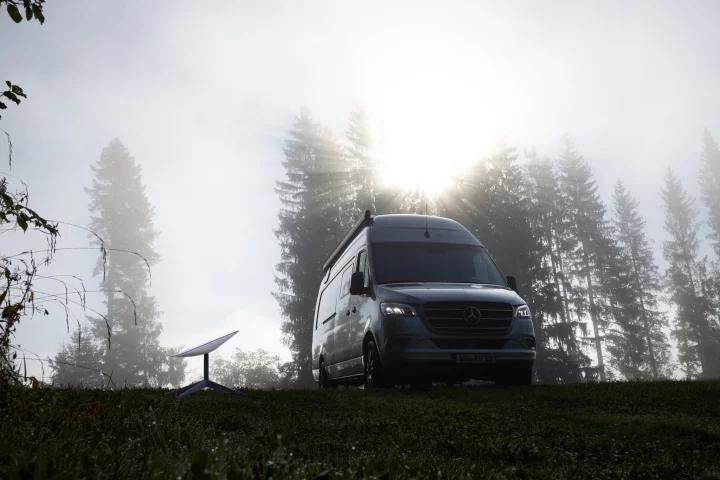Starlink
-
Amazon is launching 27 satellites into Low Earth Orbit next week, kicking off its years-in-the-making plan to set up a massive constellation and deliver internet access anywhere on the globe – similar to SpaceX's Starlink service.
-
SpaceX has just launched 20 of its Starlink satellites up into Earth's orbit, enabling direct-to-cellphone connectivity anywhere on the planet. That completes the constellation's first orbital shell, following a test of six satellites back in January.
-
In a mobile communications breakthrough, SpaceX has sent the first X post from a regular, unmodified smartphone using Starlink satellites in low Earth orbit, bringing the end of cellular dead zones a step closer.
-
SpaceX has launched a new Starlink constellation of satellites for T-Mobile with Direct to Cell capabilities. These will allow subscribers with smart phones to call, text and browse directly from satellites, even when they're in a reception 'dead zone'.
-
Two test satellites blasted off on board a United Launch Alliance Atlas V rocket emblazoned with Amazon’s famous logo on Friday, ahead of more than 3,200 planned to orbit the Earth, challenging Elon Musk’s reign over broadband real estate in space.
-
Radio telescopes are picking up strange signals from an intelligent lifeform – ourselves. A new study has shown that satellite constellations like SpaceX’s Starlink swarm are unintentionally leaking signals that can interfere with vital observations.
-
With its Starlink satellite-based internet now up and running in many corners of the globe and touching all seven continents, SpaceX is introducing a dedicated arm for national security applications called Starshield.
-
One of the shortcomings of SpaceX's Starlink RV service is that it can only be used while parked. SpaceX has solved that issue with a mobile internet option for use on the go, a potential game changer for those who want to work from the passenger seat.
-
SpaceX launched its first Starlink satellite in 2019 with a vision of blanketing the globe in high-speed internet, and it has this week ticked off an important milestone in this grand plan, beaming the service down to scientists in Antarctica.
-
SpaceX is looking to expand the reach of its Starlink internet service, through a new partnership with T-Mobile that will see the telecommunications giant's wireless network combine with orbiting satellites to fill holes in its current coverage.
-
Days after SpaceX launched Starlink for RVs last week, Alphavan jumped on the news and announced Starlink-ready camper vans. The German brand will prep its eponymous vans for simple, plug-and-play compatibility with Musk's off-grid internet service.
-
SpaceX has found a new home for its satellite-powered internet, inking a deal with independent air carrier JSX to offer onboard Wi-Fi to customers later this year, making the airline the first to carry SpaceX's Starlink internet service.
Load More











